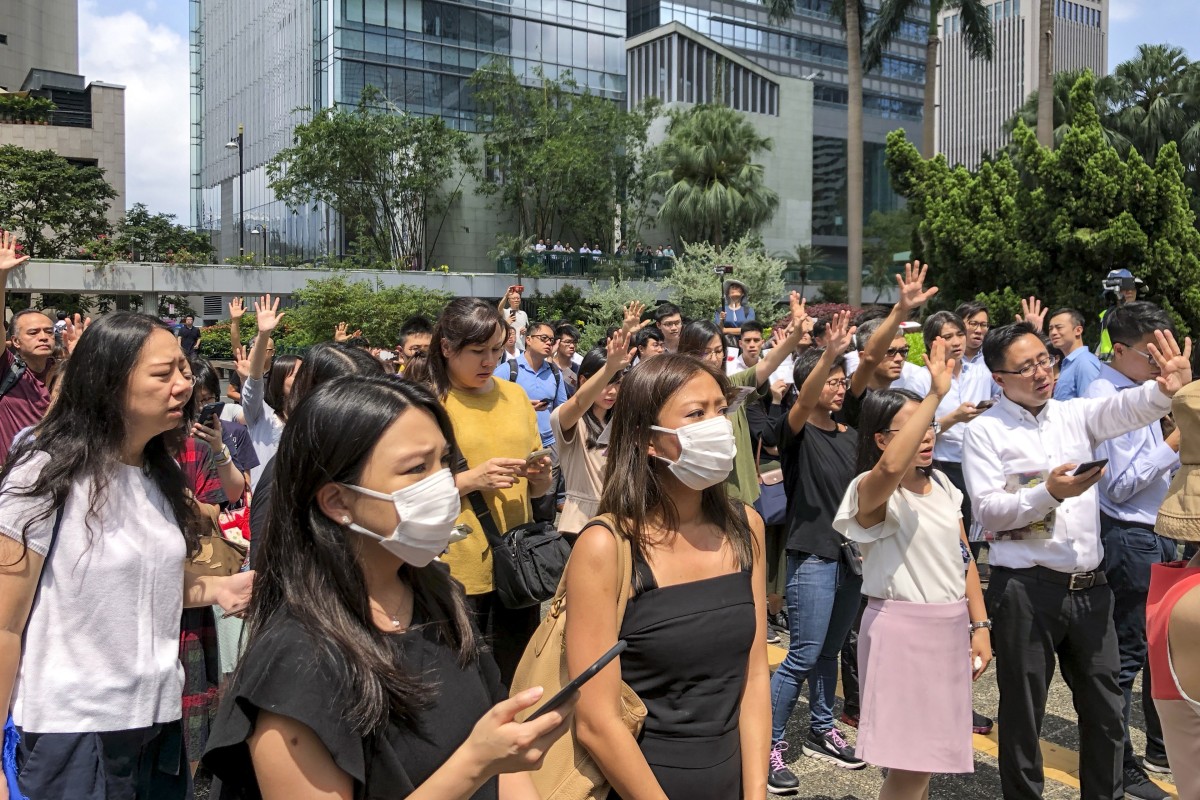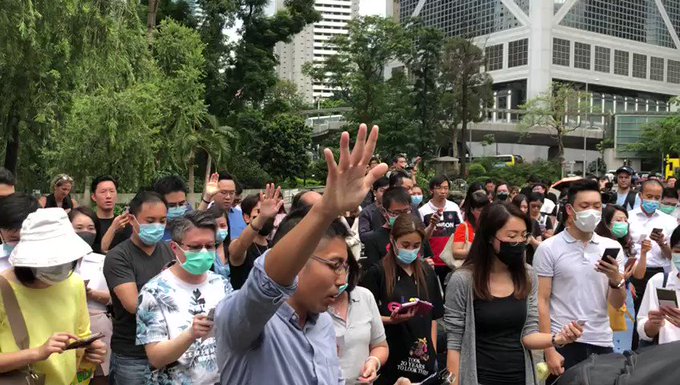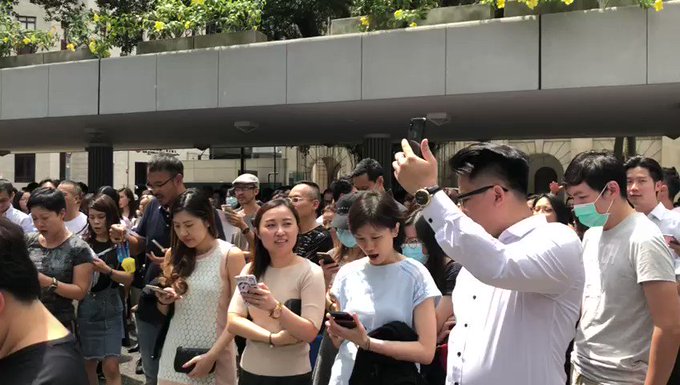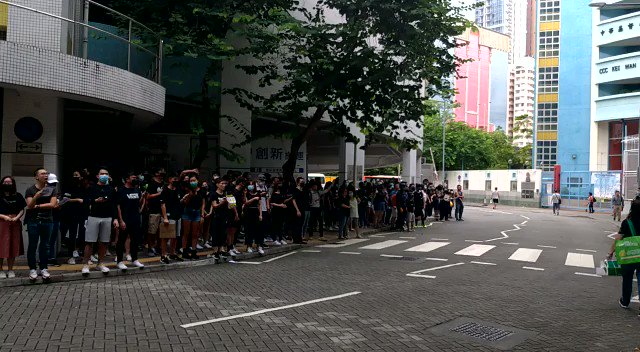As encouraging as the victory was, we have a long way to go before we can turn our attention away from the central cause
By Joshua Wong and Billy Fung Jing-en

The district council (DC) elections took place last week in Hong Kong with an unprecedentedly high turnout rate – 71 per cent.
And as predicted, the pro-democracy bloc earned a landslide victory amid the ongoing anti-extradition law movement.
Some have said that such a substantial triumph may herald a new era in Hong Kong.
Some have said that such a substantial triumph may herald a new era in Hong Kong.
And after the US signed the Hong Kong Human Rights and Democracy Act into law, support for the movement is growing vigorously.
The atmosphere in Hong Kong too, has been relatively more optimistic in recent days.
It is undeniable that such a landslide victory in the local elections is encouraging.
It is undeniable that such a landslide victory in the local elections is encouraging.
It sends a clear message to the international community that the pro-democracy camp is the majority in Hong Kong.
It goes without saying that helping hands from the free world since the outbreak of the anti-extradition law movement are of paramount importance to our democratic way of life.
In the UK, politicians not only voiced concern for our human rights in parliament but also came all the way to Hong Kong for the sake of demonstrating their support.
In the UK, politicians not only voiced concern for our human rights in parliament but also came all the way to Hong Kong for the sake of demonstrating their support.
Citizens in Hong Kong have close ties with the UK and that relationship has proved to be one of the keys to surviving during the havoc.
Without their support, we may not have been able to achieve such an outstanding victory.
US Senate has approved the bill to support human rights in Hong Kong
Throughout the elections, the movement gravely warned Beijing that it should abide by the “One Country, Two Systems” principle as promised during the Sino-British negotiation, and should never attempt to force its legal and political systems on Hong Kong.
US Senate has approved the bill to support human rights in Hong Kong
Throughout the elections, the movement gravely warned Beijing that it should abide by the “One Country, Two Systems” principle as promised during the Sino-British negotiation, and should never attempt to force its legal and political systems on Hong Kong.
Mutual respect is the crux of the implementation of basic law and the two-systems approach.
Without it, we will continue to seek international help.
Hopeful as political resistance may seem, however, our future is still generally gloomy.
Statistically speaking, the pro-Beijing camp, as with previous elections, still captured almost 40 per cent of the total vote, despite the turmoil caused by the militant and, in my view, brainless government over the past few months.
The ratio demonstrated the considerable significance of hardcore pro-government supporters, and despite our differences, we shall never be contemptuous of such a sizeable “minority”.
After all, in the long run, pro-establishment forces will still reign if and when participation in protests abates, and the red candidates advance their electoral manipulation.
Hopeful as political resistance may seem, however, our future is still generally gloomy.
Statistically speaking, the pro-Beijing camp, as with previous elections, still captured almost 40 per cent of the total vote, despite the turmoil caused by the militant and, in my view, brainless government over the past few months.
The ratio demonstrated the considerable significance of hardcore pro-government supporters, and despite our differences, we shall never be contemptuous of such a sizeable “minority”.
After all, in the long run, pro-establishment forces will still reign if and when participation in protests abates, and the red candidates advance their electoral manipulation.
Just look at the result of the DC elections in 2007.
After half a million of Hong Kongers rallied on the streets and protested against the 2003 national security law, the pro-democracy camp won a majority in DC elections in the same year, too.
After half a million of Hong Kongers rallied on the streets and protested against the 2003 national security law, the pro-democracy camp won a majority in DC elections in the same year, too.
But in the end, passion dissipated and the pro-Beijing bloc, election campaign and coordination experts, supplanted the pro-democracy camp with red candidates in the next DC elections four years later.
It should serve as a reminder that we should not turn our heads simply because superficial victories like these.
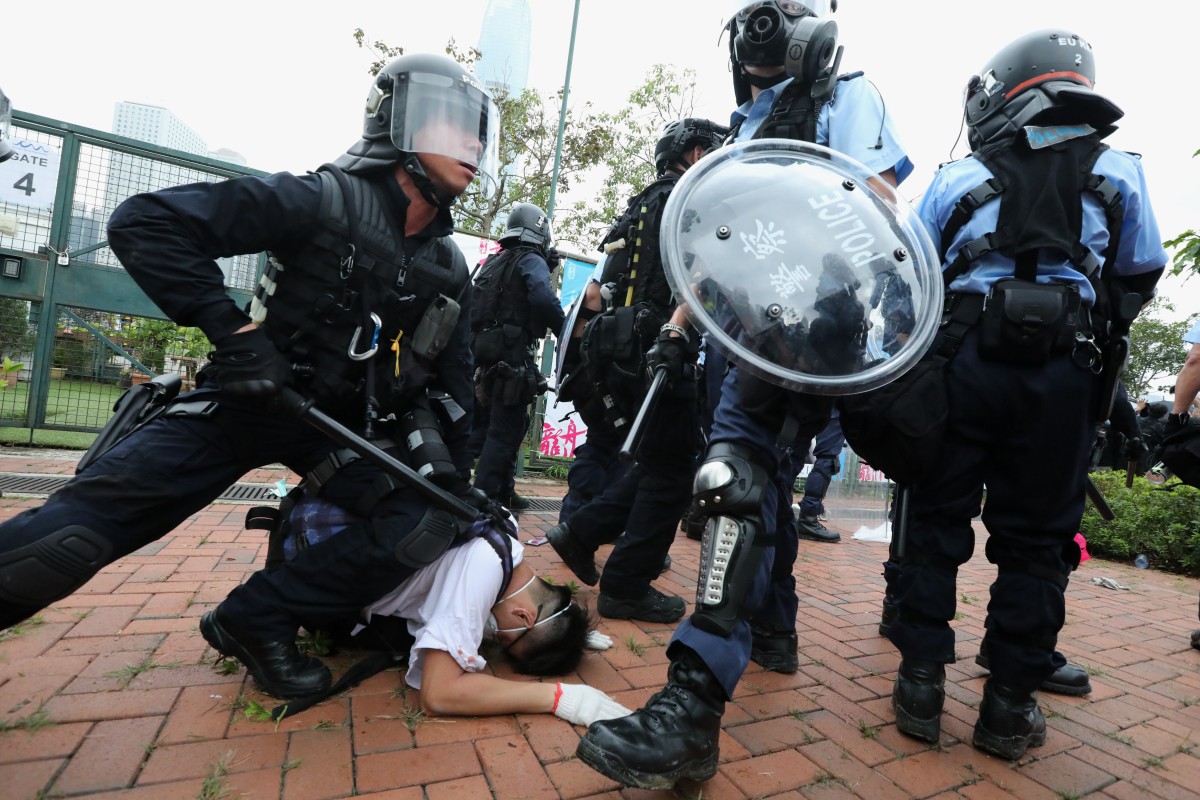

Pro-democracy protesters in Hong Kong still face a rocky road ahead.
Similarly, although it is very encouraging to see support for the Hong Kong Human Rights and Democracy Act, there is no guarantee that the US will promptly initiate an investigation and impose individual sanctions against senior officials in Hong Kong who repeatedly impinge on human rights.
These concerns have rendered us some room for reflection – where will we be after all this is over?
The battle in the previous months was not fought for electoral victory or international connections. The DC elections and international lobbying are aspects of our cause for sure, but comrades who sacrifice their life and freedom in this movement, like Ling-kit Leung and Tsz-lok Chow, fight it with one single idea – to achieve our five demands.
Similarly, although it is very encouraging to see support for the Hong Kong Human Rights and Democracy Act, there is no guarantee that the US will promptly initiate an investigation and impose individual sanctions against senior officials in Hong Kong who repeatedly impinge on human rights.
These concerns have rendered us some room for reflection – where will we be after all this is over?
The battle in the previous months was not fought for electoral victory or international connections. The DC elections and international lobbying are aspects of our cause for sure, but comrades who sacrifice their life and freedom in this movement, like Ling-kit Leung and Tsz-lok Chow, fight it with one single idea – to achieve our five demands.
We crave democracy and justice.
We, therefore, have a long way to go and shall never turn our heads on account of small victories like these.
As our former prime minister Winston Churchill said in 1942, “Now this is not the end. It is not even the beginning of the end. But it is, perhaps, the end of the beginning.”
As our former prime minister Winston Churchill said in 1942, “Now this is not the end. It is not even the beginning of the end. But it is, perhaps, the end of the beginning.”
We would like to make a plea to our old friends in the UK once again to work closely with us in this perennial struggle until our five demands have materialised.
